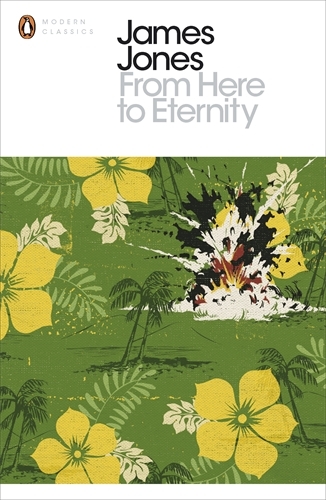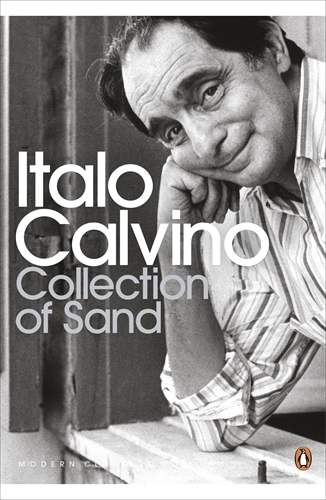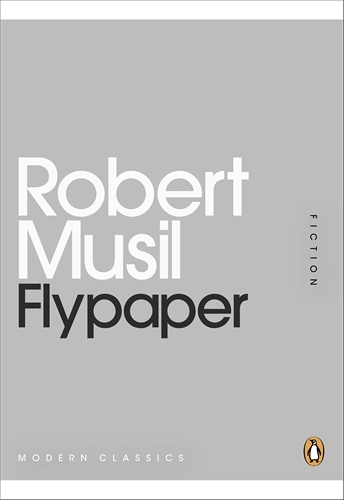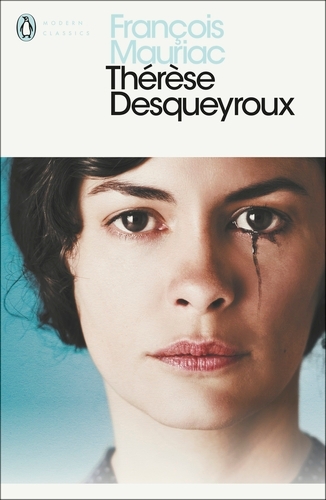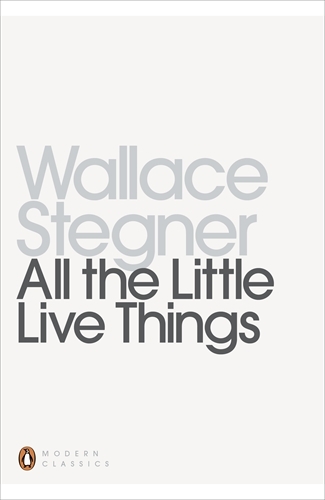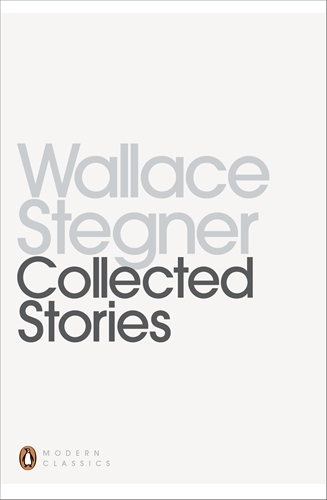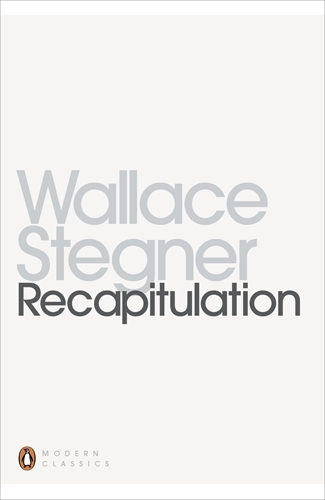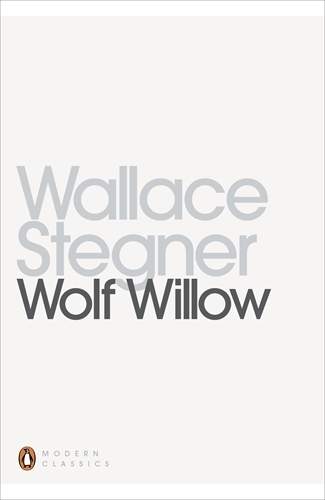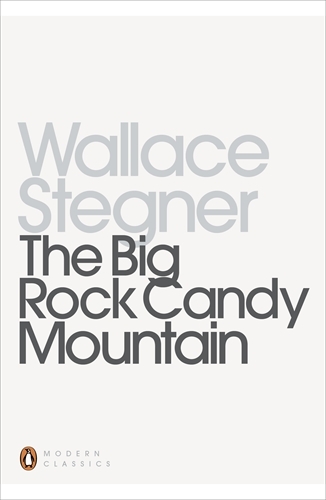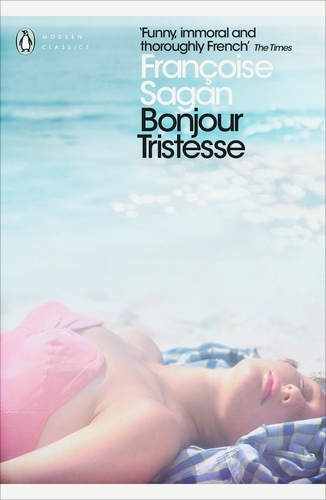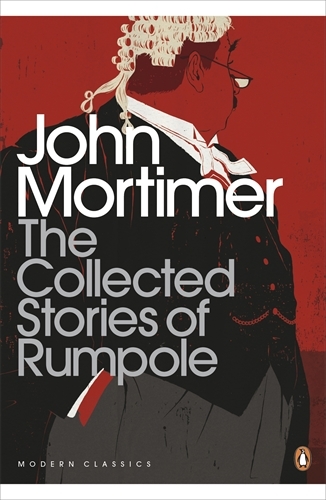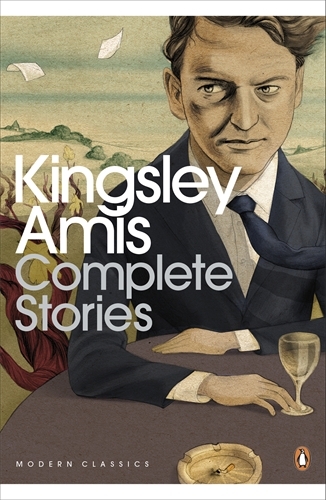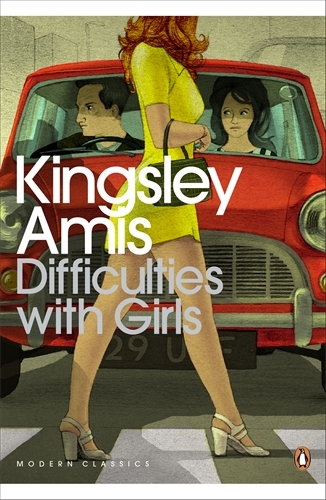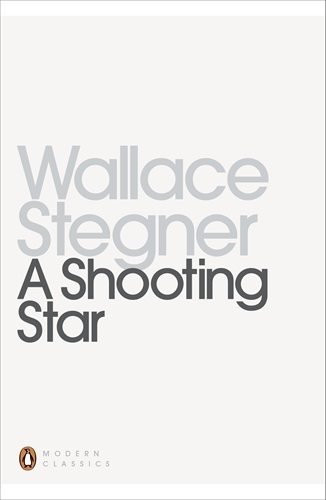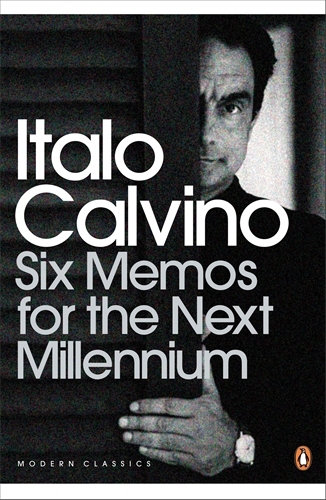Penguin Modern Classics
1279 books in this series
From Here to Eternity
'I'll never understand the fucking Army.'
Prew won't conform. He could have been the best boxer and the best bugler in his division, but he chooses the life of a straight soldier in Hawaii under the fierce tutelage of Sergeant Milt Warden. When he refuses to box for his company for mysterious reasons, he is given 'The Treatment', a relentless campaign of physical and mental abuse. Meanwhile, Warden wages his own campaign against authority by seducing the Captain's wife Karen - just because he can. Both men are bound to the Army, even though it may destroy them.
Published here in its uncensored, original version, From Here to Eternity is a raw, electrifying account of the soldier's life in the months leading up to Pearl Harbor-of men who are trained to fight the enemy, but cannot resist fighting each other.
Prew won't conform. He could have been the best boxer and the best bugler in his division, but he chooses the life of a straight soldier in Hawaii under the fierce tutelage of Sergeant Milt Warden. When he refuses to box for his company for mysterious reasons, he is given 'The Treatment', a relentless campaign of physical and mental abuse. Meanwhile, Warden wages his own campaign against authority by seducing the Captain's wife Karen - just because he can. Both men are bound to the Army, even though it may destroy them.
Published here in its uncensored, original version, From Here to Eternity is a raw, electrifying account of the soldier's life in the months leading up to Pearl Harbor-of men who are trained to fight the enemy, but cannot resist fighting each other.
The Road Through the Wall
Reminiscent of her classic story 'The Lottery', Jackson's disturbing and darkly funny first novel exposes the underside of American suburban life.
'Her books penetrate keenly to the terrible truths which sometimes hide behind comfortable fictions, to the treachery beneath cheery neighborhood faces and the plain manners of country folk; to the threat that sparkles at the rainbow's edge of the sprinkler spray on even the greenest lawns, on the sunniest of midsummer mornings' Donna Tartt
In Pepper Street, an attractive suburban neighbourhood filled with bullies and egotistical bigots, the feelings of the inhabitants are shallow and selfish: what can a neighbour gain from another neighbour, what may be won from a friend? One child stands alone in her goodness: little Caroline Desmond, kind, sweet and gentle, and the pride of her family. But the malice and self-absorption of the people of Pepper Street lead to a terrible event that will destroy the community of which they are so proud. Exposing the murderous cruelty of children, and the blindness and selfishness of adults, Shirley Jackson reveals the ugly truth behind a 'perfect' world.
Shirley Jackson's chilling tales have the power to unsettle and terrify unlike any other. She was born in California in 1916. When her short story The Lottery was first published in The New Yorker in 1948, readers were so horrified they sent her hate mail; it has since become one of the greatest American stories of all time. Her first novel, The Road Through the Wall, was published in the same year and was followed by five more: Hangsaman, The Bird's Nest, The Sundial, The Haunting of Hill House and We Have Always Lived in the Castle, widely seen as her masterpiece. Shirley Jackson died in her sleep at the age of 48.
'An amazing writer' Neil Gaiman
'Shirley Jackson is one of those highly idiosyncratic, inimitable writers ... whose work exerts an enduring spell' Joyce Carol Oates
'An unburnished exercise in the sinister' The New York Times
'Her books penetrate keenly to the terrible truths which sometimes hide behind comfortable fictions, to the treachery beneath cheery neighborhood faces and the plain manners of country folk; to the threat that sparkles at the rainbow's edge of the sprinkler spray on even the greenest lawns, on the sunniest of midsummer mornings' Donna Tartt
In Pepper Street, an attractive suburban neighbourhood filled with bullies and egotistical bigots, the feelings of the inhabitants are shallow and selfish: what can a neighbour gain from another neighbour, what may be won from a friend? One child stands alone in her goodness: little Caroline Desmond, kind, sweet and gentle, and the pride of her family. But the malice and self-absorption of the people of Pepper Street lead to a terrible event that will destroy the community of which they are so proud. Exposing the murderous cruelty of children, and the blindness and selfishness of adults, Shirley Jackson reveals the ugly truth behind a 'perfect' world.
Shirley Jackson's chilling tales have the power to unsettle and terrify unlike any other. She was born in California in 1916. When her short story The Lottery was first published in The New Yorker in 1948, readers were so horrified they sent her hate mail; it has since become one of the greatest American stories of all time. Her first novel, The Road Through the Wall, was published in the same year and was followed by five more: Hangsaman, The Bird's Nest, The Sundial, The Haunting of Hill House and We Have Always Lived in the Castle, widely seen as her masterpiece. Shirley Jackson died in her sleep at the age of 48.
'An amazing writer' Neil Gaiman
'Shirley Jackson is one of those highly idiosyncratic, inimitable writers ... whose work exerts an enduring spell' Joyce Carol Oates
'An unburnished exercise in the sinister' The New York Times
Collection of Sand
Italo Calvino in Collection of Sand claimed that 'the brain begins in the eye'. The essays collected here display his fascination with the visual universe, in which the things we see tell a truth about the world. With encyclopedic knowledge and engaging curiosity, Calvino writes about such diverse subjects as the imaginative pleasures of maps, bizarre exhibitions and the earliest forms of written language. Books and paintings provoke discussions of artistic motivation, while descriptions of a meticulous Japanese garden, Trajan's column crumbling to dust or a Mexican temple smothered by the jungle lead to contemplations on space, time and civilization.
Surprising and profound, Collection of Sand provides a glimpse into the mind of a master of the magination.
Italo Calvino, one of Italy's finest postwar writers, has delighted readers around the world with his deceptively simple, fable-like stories. Calvino was born in Cuba in 1923 and raised in San Remo, Italy; he fought for the Italian Resistance from 1943-45. He died in Siena in 1985, of a brain hemorrhage.
Martin L. McLaughlin is Professor of Italian and Fiat-Serena Professor of Italian Studies at the University of Oxford where he is a Fellow of Magdalen College. He is the English translator of Umberto Eco and Italo Calvino among many others.
Surprising and profound, Collection of Sand provides a glimpse into the mind of a master of the magination.
Italo Calvino, one of Italy's finest postwar writers, has delighted readers around the world with his deceptively simple, fable-like stories. Calvino was born in Cuba in 1923 and raised in San Remo, Italy; he fought for the Italian Resistance from 1943-45. He died in Siena in 1985, of a brain hemorrhage.
Martin L. McLaughlin is Professor of Italian and Fiat-Serena Professor of Italian Studies at the University of Oxford where he is a Fellow of Magdalen College. He is the English translator of Umberto Eco and Italo Calvino among many others.
Flypaper
'They no longer hold themselves up with all their might, but sink a little and at that moment appear totally human'
Of the very first rank of prose stylists, Robert Musil captures a scene's every telling detail and symbolic aspect with a precise and remarkable beauty. In these nine stories and essays, he considers holidaymakers and stone monuments, tales of war and blackbirds, and the great pathos of a tiny death: a fly's impossible fight against the grip of flypaper.
This book includes Flypaper, Monkey Island, Fisherman on the Baltic, Sheep, As Seen in Another Light, Sarcophagus Cover, Monuments, The Paint Spreader, It's Lovely Here and The Blackbird.
Of the very first rank of prose stylists, Robert Musil captures a scene's every telling detail and symbolic aspect with a precise and remarkable beauty. In these nine stories and essays, he considers holidaymakers and stone monuments, tales of war and blackbirds, and the great pathos of a tiny death: a fly's impossible fight against the grip of flypaper.
This book includes Flypaper, Monkey Island, Fisherman on the Baltic, Sheep, As Seen in Another Light, Sarcophagus Cover, Monuments, The Paint Spreader, It's Lovely Here and The Blackbird.
Thérèse Desqueyroux
Nobel-prize winner François Mauriac's masterpiece is Thérèse Desqueyroux, the story of a complex woman trapped by provincial life. First published in 1927, this astonishing and daring novel has echoes of Madame Bovary and has recently been made into a ravishing film starring Amélie actress Audrey Tautou.
Thérèse Desqueyroux walks free from court, acquitted of trying to poison her husband. Everyone knew she'd tried to do it, but family honour was more important than the truth. As she travels home to the gloomy forests of Argelouse, Thérèse looks back over the marriage that brought her nothing but stifling darkness, and wonders, has she really escaped punishment or is it only just about to begin?
François Mauriac was born in Bordeaux in 1885. He left his university studies to devote himself to writing, and published a collection of poems, Les Mains jointes (Clasped Hands), in 1909. He married in 1913 and the following year was mobilized to serve in the First World War with the Auxilliary Medical Squad in Thessalonica. Mauriac's major literary breakthrough came in 1922 with a novel called Le Baiser au lepreux (A Kiss for the Leper). His most famous work, Thérèse Desqueroux, appeared in 1927 and has been made into a film twice: first in 1962, with Emmanuelle Riva in the lead role, and more recently in 2012, in a version starring Audrey Tautou. In 1933 Mauriac was elected a Member of the French Academy and in 1952 he received the Nobel Prize for Literature. He died in Paris in 1970.
'A great novel ... the brilliance of its structure and the elegance of its prose never fail to take my breath away' - Beryl Bainbridge
Thérèse Desqueyroux walks free from court, acquitted of trying to poison her husband. Everyone knew she'd tried to do it, but family honour was more important than the truth. As she travels home to the gloomy forests of Argelouse, Thérèse looks back over the marriage that brought her nothing but stifling darkness, and wonders, has she really escaped punishment or is it only just about to begin?
François Mauriac was born in Bordeaux in 1885. He left his university studies to devote himself to writing, and published a collection of poems, Les Mains jointes (Clasped Hands), in 1909. He married in 1913 and the following year was mobilized to serve in the First World War with the Auxilliary Medical Squad in Thessalonica. Mauriac's major literary breakthrough came in 1922 with a novel called Le Baiser au lepreux (A Kiss for the Leper). His most famous work, Thérèse Desqueroux, appeared in 1927 and has been made into a film twice: first in 1962, with Emmanuelle Riva in the lead role, and more recently in 2012, in a version starring Audrey Tautou. In 1933 Mauriac was elected a Member of the French Academy and in 1952 he received the Nobel Prize for Literature. He died in Paris in 1970.
'A great novel ... the brilliance of its structure and the elegance of its prose never fail to take my breath away' - Beryl Bainbridge
All the Little Live Things
'Timely and timeless ... Will hold any reader to its last haunting page' Chicago Tribune
The early life of Joe Allston, the retired literary agent of Stegner's National Book Award-winning novel, The Spectator Bird, features in this disquieting and keenly observed novel. Scarred by the senseless death of their son and baffled by the engulfing chaos of the 1960s, Allston and his wife, Ruth, have left the coast for a California retreat. And although their new home looks like Eden, it also has serpents: Jim Peck, a messianic exponent of drugs, yoga and sex; and Marian Catlin, an attractive young woman whose otherworldly innocence is far more appealing - and far more dangerous.
'The Great Gatsby captures the twenties and yet transcends them. All the Little Live Things is a comparable achievement for the sixties ... Stegner's craft is here at an apex' Virginia Quarterly Review
The early life of Joe Allston, the retired literary agent of Stegner's National Book Award-winning novel, The Spectator Bird, features in this disquieting and keenly observed novel. Scarred by the senseless death of their son and baffled by the engulfing chaos of the 1960s, Allston and his wife, Ruth, have left the coast for a California retreat. And although their new home looks like Eden, it also has serpents: Jim Peck, a messianic exponent of drugs, yoga and sex; and Marian Catlin, an attractive young woman whose otherworldly innocence is far more appealing - and far more dangerous.
'The Great Gatsby captures the twenties and yet transcends them. All the Little Live Things is a comparable achievement for the sixties ... Stegner's craft is here at an apex' Virginia Quarterly Review
Collected Stories
'This is the age for the short story. None will be better or more worthy of admiration than Wallace Stegner's Collected Stories' Washington Post Book World
In a literary career spanning more than fifty years, Wallace Stegner, winner of a Pulitzer Prize and the National Book Award, has created a remarkable record of the history and culture of twentieth-century America. These thirty-one stories demonstrate why he is acclaimed as one of America's master storytellers. Here are tales of young love and older wisdom, of the order and consistency of the natural world and the chaos, contradictions and continuities of the human being.
'Exemplary stories ... The reader of Stegner's writing is immediately reminded of an essential America ... a distinct place, a unique people, a common history, and a shared heritage remembered as only Stegner can' Los Angeles Times
In a literary career spanning more than fifty years, Wallace Stegner, winner of a Pulitzer Prize and the National Book Award, has created a remarkable record of the history and culture of twentieth-century America. These thirty-one stories demonstrate why he is acclaimed as one of America's master storytellers. Here are tales of young love and older wisdom, of the order and consistency of the natural world and the chaos, contradictions and continuities of the human being.
'Exemplary stories ... The reader of Stegner's writing is immediately reminded of an essential America ... a distinct place, a unique people, a common history, and a shared heritage remembered as only Stegner can' Los Angeles Times
Recapitulation
'One of our greatest contemporary novelists' Washington Post
Bruce Mason returns to Salt Lake City not for his aunt's funeral, but to encounter the place he fled in bitterness forty-five years ago. A successful statesman and diplomat, Mason had buried his awkward childhood to become a figure who commanded international respect. But the realities of the present recede in the face of ghosts of his past. As he makes the perfunctory arrangements for the funeral, his inner pilgrimage leads him to the father who darkened his childhood, the mother whose support was both redeeming and embarrassing, the friend who drew him into the respectable world of which he so craved to be a part, and the woman he nearly married.
In this profoundly moving book, Stegner has drawn an intimate portrait of a man understanding how his life has been shaped by experiences seemingly remote and inconsequential.
Bruce Mason returns to Salt Lake City not for his aunt's funeral, but to encounter the place he fled in bitterness forty-five years ago. A successful statesman and diplomat, Mason had buried his awkward childhood to become a figure who commanded international respect. But the realities of the present recede in the face of ghosts of his past. As he makes the perfunctory arrangements for the funeral, his inner pilgrimage leads him to the father who darkened his childhood, the mother whose support was both redeeming and embarrassing, the friend who drew him into the respectable world of which he so craved to be a part, and the woman he nearly married.
In this profoundly moving book, Stegner has drawn an intimate portrait of a man understanding how his life has been shaped by experiences seemingly remote and inconsequential.
Wolf Willow
'Enchanting, heartrending and eminently enviable' Vladimir Nabokov
Pulitzer Prize-winning author Wallace Stegner's boyhood was spent on the beautiful and remote frontier of the Cypress Hills in southern Saskatchewan, where his family homesteaded fro 1914 to 1920. In a recollection of his years there, Stegner applies childhood remembrances and adult reflection to the history of the region to create this wise and enduring portrait of pioneer community existing in the verge of a modern world.
'Stegner has summarized the frontier story and interpreted it as only one who was part of it could' The New York Times Book Review
Pulitzer Prize-winning author Wallace Stegner's boyhood was spent on the beautiful and remote frontier of the Cypress Hills in southern Saskatchewan, where his family homesteaded fro 1914 to 1920. In a recollection of his years there, Stegner applies childhood remembrances and adult reflection to the history of the region to create this wise and enduring portrait of pioneer community existing in the verge of a modern world.
'Stegner has summarized the frontier story and interpreted it as only one who was part of it could' The New York Times Book Review
The Big Rock Candy Mountain
Bo Mason, his wife, Elsa, and their two boys live a transient life of poverty and despair. Drifting from town to town and from state to state, the violent, ruthless Bo seeks out his fortune - in the hotel business, in new farmland and eventually, in illegal rum-running through the treacherous back roads of the American Northwest.
In this affecting narrative, Wallace Stegner portrays more than thirty years in the life of the Mason family as they struggle to survive during the lean years of the early twentieth century.
Wallace Stegner was the author of, among other works of fiction, Remembering Laughter (1973); Joe Hill (1950); All the Little Live Things (1967, Commonwealth Club Gold Medal); A Shooting Star (1961); Angle of Repose (1971, Pulitzer Prize); The Spectator Bird (1976, National Book Award); Recapitulation (1979); Crossing to Safety (1987); and Collected Stories (1990). His nonfiction includes Beyond the Hundredth Meridian (1954); Wolf Willow (1963); The Sound of Mountain Water (essays, 1969); The Uneasy Chair: A Biography of Bernard deVoto (1964); American Places (with Page Stegner, 1981); and Where the Bluebird Sings to the Lemonade Springs: Living and Writing in the West (1992). Three short stories have won O.Henry prizes, and in 1980 he received the Robert Kirsch Award from the Los Angeles Times for his lifetime literary achievements.
In this affecting narrative, Wallace Stegner portrays more than thirty years in the life of the Mason family as they struggle to survive during the lean years of the early twentieth century.
Wallace Stegner was the author of, among other works of fiction, Remembering Laughter (1973); Joe Hill (1950); All the Little Live Things (1967, Commonwealth Club Gold Medal); A Shooting Star (1961); Angle of Repose (1971, Pulitzer Prize); The Spectator Bird (1976, National Book Award); Recapitulation (1979); Crossing to Safety (1987); and Collected Stories (1990). His nonfiction includes Beyond the Hundredth Meridian (1954); Wolf Willow (1963); The Sound of Mountain Water (essays, 1969); The Uneasy Chair: A Biography of Bernard deVoto (1964); American Places (with Page Stegner, 1981); and Where the Bluebird Sings to the Lemonade Springs: Living and Writing in the West (1992). Three short stories have won O.Henry prizes, and in 1980 he received the Robert Kirsch Award from the Los Angeles Times for his lifetime literary achievements.
Bonjour Tristesse and A Certain Smile
Published when she was only eighteen, Françoise Sagan's astonishing first novel Bonjour Tristesse became an instant bestseller. It tells the story of Cécile, who leads a carefree life with her widowed father and his young mistresses until, one hot summer on the Riviera, he decides to remarry - with devastating consequences. In A Certain Smile Dominique, a young woman bored with her lover, begins an encounter with an older man that unfolds in unexpected and troubling ways.
The Collected Stories of Rumpole
For the first time in Penguin Modern Classics, this is a new selection of some of the best moments in the trials of Horace Rumpole, fiction's most loved barrister-at-law. When not downing Château Fleet Street in Pommeroy's Wine Bar or held in check by She Who Must Be Obeyed, the Old Bailey hack can be found battling through the Law Courts with his formidable mixture of wit, eloquence, cynicism and scruffiness. And whether he is defending various members of the notorious and incompetent south London crime family, the Timsons, or mocking the pomposity and hypocrisy of his own profession, Rumpole is an amiably relentless reminder of what justice should really be about. These twenty stories serve as the definitive introduction to one of the wisest and wittiest characters in British comic writing, in all his shabby glory.
Complete Stories
The short stories of Kingsley Amis - the great master of post-war comic prose - are dark, playful, moving, surprising and extremely funny. This definitive collection gathers all Amis's short fiction in a single volume for the first time and encompasses five decades of storytelling. In 'The 2003 Claret', written in 1958, a time machine is invented for the weighty task of sending a man to 2010 to discover what the booze will taste like. In 'Boris and the Colonel' a Cambridge spy is unearthed in the sleepy English countryside with the help of a plucky horse, while In 'Mason's Life' two men meet inside their respective dreams. The collection spans many genres, offering ingenious alternative histories, mystery and horror, satirical reflections and a devilishly funny attacks. Amis's stories reveal the scope of his imagination and the warmth beneath his acerbic humour, and they all share the unmistakable style and wit of one of Britain's best loved writers.
Kingsley Amis' (1922-1995) works take a humorous yet highly critical look at British society, especially of the period following the end of World War II. Born in London, Amis explored his disillusionment with British society in novels such as THAT UNCERTAIN FEELING (1955). His other works include THE GREEN MAN (1970); STANLEY AND THE WOMEN (1984); and THE OLD DEVILS (1986) which won the Booker Prize. Amis also wrote poetry, criticism, and short stories.
Rachel Cusk was born in 1967. She has won the Whitbread First Novel Award and the Somerset Maugham Award, and is the author of two works of non-fiction and seven novels, including In The Fold, longlisted for the 2005 Man Booker Prize, and Arlington Park, shortlisted for the Orange Broadband Prize 2007. Her non-fiction book, A Life's Work, was published to huge acclaim in 2001, and her account of a summer spent in Italy with her family, The Last Supper, was published in 2009. Her most recent novel, The Bradshaw Variations was published in 2009. In 2003 she was chosen as one of Granta's Best Young Novelists. She lives in Brighton.
Kingsley Amis' (1922-1995) works take a humorous yet highly critical look at British society, especially of the period following the end of World War II. Born in London, Amis explored his disillusionment with British society in novels such as THAT UNCERTAIN FEELING (1955). His other works include THE GREEN MAN (1970); STANLEY AND THE WOMEN (1984); and THE OLD DEVILS (1986) which won the Booker Prize. Amis also wrote poetry, criticism, and short stories.
Rachel Cusk was born in 1967. She has won the Whitbread First Novel Award and the Somerset Maugham Award, and is the author of two works of non-fiction and seven novels, including In The Fold, longlisted for the 2005 Man Booker Prize, and Arlington Park, shortlisted for the Orange Broadband Prize 2007. Her non-fiction book, A Life's Work, was published to huge acclaim in 2001, and her account of a summer spent in Italy with her family, The Last Supper, was published in 2009. Her most recent novel, The Bradshaw Variations was published in 2009. In 2003 she was chosen as one of Granta's Best Young Novelists. She lives in Brighton.
Difficulties With Girls
In Kingsley Amis's Difficulties With Girls, Jenny Bunn and Patrick Standish have settled into London life with their troubled courtship long behind them. Patrick works in publishing and Jenny teaches sick children in a hospital. They have reached a certain level of maturity, or so they think. It is not long before they realize their respectability will be severely tested by seductive neighbours with a taste for whisky, the sexually confused Ted Valentine, and the literary set of Hampstead.
In this funny and provocative study of a young couple growing up, Amis shows us that the difficulty with marriage is that it's so hard to preserve, especially when Patrick and Jenny harbour deep yearnings for a different kind of life.
Kingsley Amis's (1922-95) works take a humorous yet highly critical look at British society, especially in the period following the end of World War II. Born in London, Amis explored his disillusionment in novels such as That Uncertain Feeling (1955). His other works include The Green Man (1970), Stanley and the Women (1984), and The Old Devils (1986), which won the Booker Prize. Amis also wrote poetry, criticism, and short stories.
In this funny and provocative study of a young couple growing up, Amis shows us that the difficulty with marriage is that it's so hard to preserve, especially when Patrick and Jenny harbour deep yearnings for a different kind of life.
Kingsley Amis's (1922-95) works take a humorous yet highly critical look at British society, especially in the period following the end of World War II. Born in London, Amis explored his disillusionment in novels such as That Uncertain Feeling (1955). His other works include The Green Man (1970), Stanley and the Women (1984), and The Old Devils (1986), which won the Booker Prize. Amis also wrote poetry, criticism, and short stories.
A Shooting Star
Sabrina Castro, an attractive woman with a strong New England heritage, is married to a wealthy, older California physician who no longer fulfils her dreams. An almost accidental misstep leads her down the slow descent of moral disintegration, until there is no place for her to go but up and out. How Sabrina comes to term with her life is the theme of this absorbing personal drama, played out against the background of an old Peninsula estate where her mother lives among her servants, her memories of Boston and her treasured family archives. A Shooting star displays all the greatness of Wallace Stegner's storytelling powers.
Wallace Stegner was the author of, among other works of fiction, Remembering Laughter (1973); The Big Rock Candy Mountain (1943); Joe Hill (1950); All the Little Live Things (1967, Commonwealth Club Gold Medal); Angle of Repose (1971, Pulitzer Prize); The Spectator Bird (1976, National Book Award); Recapitulation (1979); Crossing to Safety (1987); and Collected Stories (1990). His nonfiction includes Beyond the Hundredth Meridian (1954); Wolf Willow (1963); The Sound of Mountain Water (essays, 1969); The Uneasy Chair: A Biography of Bernard deVoto (1964); American Places (with Page Stegner, 1981); and Where the Bluebird Sings to the Lemonade Springs: Living and Writing in the West (1992). Three short stories have won O.Henry prizes, and in 1980 he received the Robert Kirsch Award from the Los Angeles Times for his lifetime literary achievements.
Wallace Stegner was the author of, among other works of fiction, Remembering Laughter (1973); The Big Rock Candy Mountain (1943); Joe Hill (1950); All the Little Live Things (1967, Commonwealth Club Gold Medal); Angle of Repose (1971, Pulitzer Prize); The Spectator Bird (1976, National Book Award); Recapitulation (1979); Crossing to Safety (1987); and Collected Stories (1990). His nonfiction includes Beyond the Hundredth Meridian (1954); Wolf Willow (1963); The Sound of Mountain Water (essays, 1969); The Uneasy Chair: A Biography of Bernard deVoto (1964); American Places (with Page Stegner, 1981); and Where the Bluebird Sings to the Lemonade Springs: Living and Writing in the West (1992). Three short stories have won O.Henry prizes, and in 1980 he received the Robert Kirsch Award from the Los Angeles Times for his lifetime literary achievements.
Six Memos for the Next Millennium
Italo Calvino was due to deliver the Charles Eliot Norton lectures at Harvard in 1985-86, but they were left unfinished at his death. The surviving drafts explore of the concepts of Lightness, Quickness, Multiplicity, Exactitude and Visibility (Constancy was to be the sixth) in serious yet playful essays that reveal Calvino's debt to the comic strip and the folktale. With his customary imagination and grace, he sought to define the virtues of the great literature of the past in order to shape the values of the future. This collection is a brilliant précis of the work of a great writer whose legacy will endure through the millennium he addressed.
Italo Calvino, one of Italy's finest postwar writers, has delighted readers around the world with his deceptively simple, fable-like stories. Calvino was born in Cuba in 1923 and raised in San Remo, Italy; he fought for the Italian Resistance from 1943-45. His major works include Cosmicomics (1968), Invisible Cities (1972), and If on a winter's night a traveler (1979). He died in Siena in1985, of a brain hemorrhage.
Italo Calvino, one of Italy's finest postwar writers, has delighted readers around the world with his deceptively simple, fable-like stories. Calvino was born in Cuba in 1923 and raised in San Remo, Italy; he fought for the Italian Resistance from 1943-45. His major works include Cosmicomics (1968), Invisible Cities (1972), and If on a winter's night a traveler (1979). He died in Siena in1985, of a brain hemorrhage.
